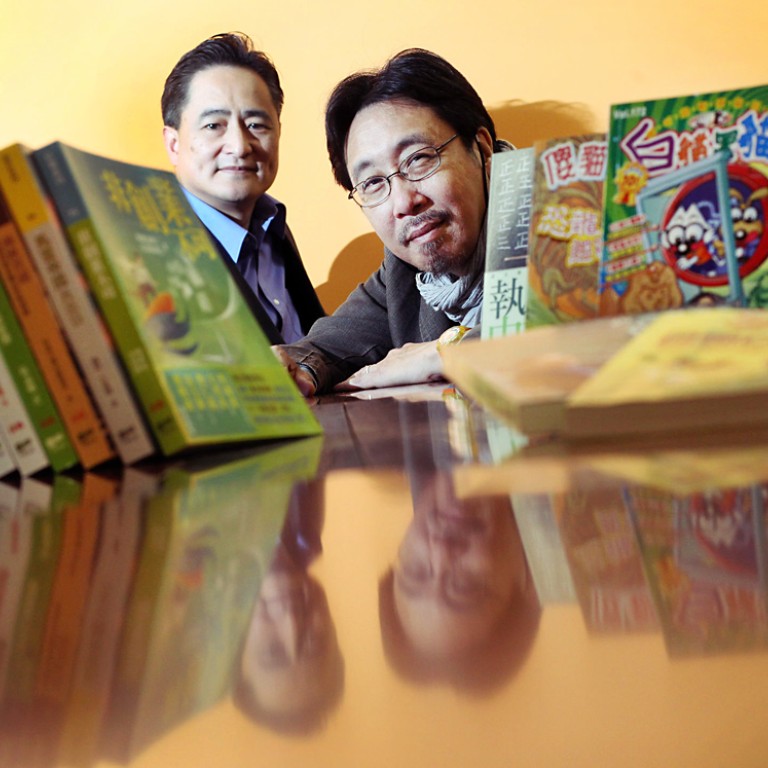
Hong Kong authors seek public lending right so libraries pay royalties on book loans
445 local writers lobby the government to pass law enshrining their public lending right, to compensate for loss of sales on works in libraries
When well-known comic artist Ma Sing-yuen received thanks from a grateful mother who told him that his books had taken her son deep into the world of reading, he had mixed emotions.

"If an author has no income from selling his books, he will lose the incentive to continue creating," Ma said.
He is one of almost 450 local authors lobbying the government to introduce a public lending right law. Such a measure would require public libraries to pay authors who publish books in Hong Kong a royalty - of HK$3 to HK$5 - each time a book is borrowed. Authors have a right to be paid for free public use of their works in libraries, they say.
With smartphones and internet connections ubiquitous, ever-rising inflation and skyrocketing rents, more bookstores had closed and people tended to save their money for other things instead of buying books, Ma said.
In Hong Kong's publishing market, the situation is worsened by the number of public libraries - 67, with 10 mobile libraries - which had further reduced people's desire to buy books, because everyone had a library just round the corner, he said.
According to Ma, 40 per cent fewer copies of his books were sold last year than in 2009.
Authors' public lending rights have been recognised in legislation by at least 41 countries, with 28 stipulating it in laws that require libraries to make the payment. Most of these countries are in Europe, including Britain, France and Germany. Others with such a law include Australia, New Zealand, Canada and Israel.
If the local authors succeed in their campaign, Hong Kong will become the first region in Asia to adopt such a system.
Derek Lee Wai-wing, spokesman of the Hong Kong Public Lending Right Alliance, said lawmakers had agreed to put the topic on the Legislative Council's agenda and that the discussion could start in the home affairs panel in October.
Set up just last year, the alliance has gained the support of 80 per cent of local publishers as well as the 445 local authors.
A Home Affairs Department spokeswoman said the guidelines issued by the International Federation of Library Associations (Ifla) did not require the adoption of a public-lending-right system. The association also believed that public lending through libraries would often help in the marketing of copyrighted works and encourage sales, she said.
But Lee said local books were the most popular items in public libraries, being borrowed up to 30 million times a year in total, yet only 10 per cent of the libraries' HK$700 million budget went into buying the books.
He said publishers would usually plan to run a second or third printing of a book, but because of local books' high lending rate, which reduced demand for sales, they could not print any more books after the first run.
The government was already paying royalties to copyright holders of the audio and visual materials available in public libraries, Lee said.
Ma said the government should consider the system as a way to protect local culture and encourage more people to join the creative industry.
"Look at our film industry. It has been withering from its golden years," he said.
"There is much local culture worth protecting. If the government does not start doing something about it soon, it will all die out, bit by bit."



